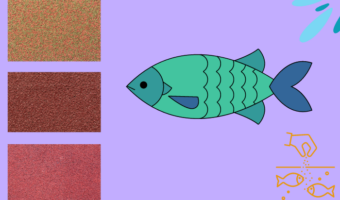Aquaculture Nutrition and Feed Management
About This Course
The course “Aquaculture Nutrition and Feed Management” provides a comprehensive exploration of the principles, techniques, and practices involved in nutrition and feed management in aquaculture. This course is designed to equip participants with the knowledge and skills necessary to optimize the nutrition of aquatic organisms and ensure their healthy growth and development in aquaculture systems.
Through a combination of theoretical knowledge, practical demonstrations, and case studies, participants will delve into the core aspects of aquaculture nutrition and feed management. They will gain insights into the nutritional requirements of different aquatic species, feed formulation techniques, feed manufacturing, and feeding strategies specific to aquaculture.
The course will cover topics such as the basics of aquatic animal nutrition, including macronutrients, micronutrients, and essential amino acids. Participants will learn about the nutritional requirements of different species, considering their growth stages, physiological needs, and environmental factors.
Furthermore, participants will explore the principles and techniques of feed formulation for aquaculture, including the selection of appropriate feed ingredients, nutrient balancing, and the use of alternative protein and lipid sources. They will gain insights into the formulation of nutritionally complete and cost-effective diets that meet the specific requirements of aquatic organisms.
In addition, participants will learn about feed manufacturing processes, including extrusion, pelletizing, and drying techniques. They will understand the quality control measures and considerations for feed production, including feed storage, handling, and transportation.
Throughout the course, participants will engage in practical exercises and hands-on demonstrations to apply their knowledge in feed management practices. They will learn about feeding strategies, including feeding frequency, rationing, and feeding protocols for different aquaculture systems.
Participants will also gain insights into feed management techniques, including feed conversion ratio optimization, feeding efficiency, and the prevention of overfeeding and nutrient wastage. They will understand the impact of feed management on the growth, health, and overall performance of aquatic organisms.
By the end of the course, participants will have a solid understanding of aquaculture nutrition and feed management principles and practices. They will be equipped with the knowledge and skills to optimize the nutrition and feeding practices in aquaculture systems, ensuring the health and sustainable growth of aquatic organisms.
Note: The course description provided is fictional and serves as an example. The actual course description may vary depending on the educational institution or program.
Learning Objectives
Material Includes
- E-Books
- Guide Papers
- Certificate of Completion
This course is best for:
- Aquaculture Practitioners: Individuals already working in the aquaculture industry, such as fish farm managers, aquaculture technicians, nutritionists, or feed manufacturers, can enhance their knowledge and skills through this course. It provides them with a comprehensive understanding of aquaculture nutrition principles and feed management techniques to optimize the health and growth of aquatic organisms.
- Fisheries and Aquaculture Professionals: Professionals involved in fisheries and aquaculture management, aquaculture extension services, or nutrition consultancy will benefit from this course. It offers them insights into the nutritional requirements of aquatic species, feed formulation, and feeding strategies to support sustainable aquaculture practices.
- Researchers and Academics: Researchers and academics engaged in aquaculture nutrition, fish physiology, feed technology, or related areas will find this course valuable. It provides them with foundational knowledge of aquaculture nutrition principles and feed management techniques, allowing them to conduct informed research and teach relevant topics.
- Aquaculture Nutritionists: Nutritionists specializing in aquaculture or working in feed manufacturing companies will benefit from this course. It offers them a deeper understanding of the nutritional needs of aquatic organisms, feed formulation strategies, and the optimization of feed ingredients for different species.
- Students: Undergraduate or postgraduate students studying aquaculture, fisheries, marine biology, nutrition, or related disciplines will find this course valuable. It complements their academic studies by providing them with a comprehensive understanding of aquaculture nutrition principles, feed formulation techniques, and feed management practices.
- Feed Manufacturers and Suppliers: Individuals involved in the production, distribution, or marketing of aquaculture feeds will gain valuable insights from this course. It offers them a deeper understanding of feed formulation, manufacturing processes, quality control, and the latest trends in aquaculture nutrition.
- Please note that the specific prerequisites and level of detail covered in the course may vary depending on the educational institution or program offering the course.






